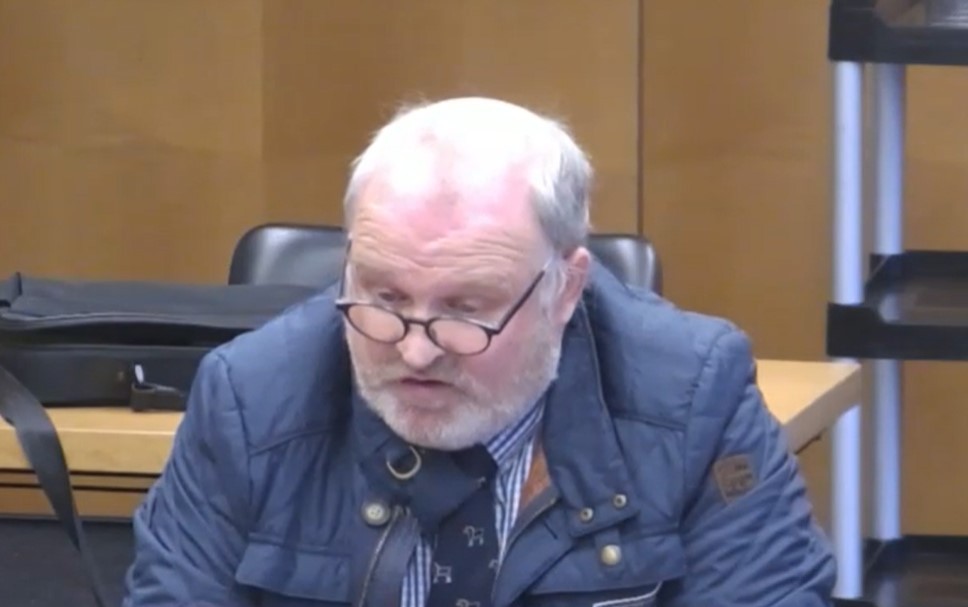Call to Cut 182-Day Rule for Holiday Lets to Pay Business Rates Rather than Second Homes Tax Expected to be Rejected by Pembrokeshire Councillors

A call to cut the 182-day rule for self-catering holiday lets to be able to pay business rates rather than second homes tax in Pembrokeshire is expected to be turned down by senior councillors.
A Notice of Motion from Councillor Huw Murphy – previously heard at Pembrokeshire County Council’s October meeting – asked for a Pembrokeshire reduction in Welsh Government criteria where holiday lets must be filled for 182 days a year – up from a previous 70 – in order to qualify for business rates.
Second homes, and self-catering businesses not meeting the criteria, are currently paying a 100 per cent council tax premium in the county, with a rise to 150 per cent being mooted.
The October council meeting referred the notice to the council’s Cabinet, meeting on December 4.
Cllr Murphy’s notice of motion reads: “That PCC use its discretionary relief policy regarding the current 182-day occupancy limit for self-catering holiday accommodation that previously paid business rates and reduce the eligibility criteria to 140 days (20 weeks) within Pembrokeshire as being fairer and more supportive of the tourism industry within the county.
“Tourism is a key component of the Pembrokeshire economy since time immemorial, but more so on the coast and rural areas, and employ a significant number of people both full and part time and is key in supporting many small self-employed businesses.”
He added: “In the current economic crisis PCC need to use every tool at its disposal in supporting these businesses to survive and thrive and the reduction of the number of letting days to 140 required by self-catering accommodation providers to qualify for non-domestic rates would be welcomed by many involved in tourism in the county.”
In a supporting statement to his notice, Welsh speaker Cllr Murphy says “a perception has developed within elements of the media (social and mainstream) where anyone who owns more than one property is deemed by many to be a very wealthy individual, more than likely to be a non-resident of Pembrokeshire and assumed by many to not even be Welsh”.
He says that more Welsh is spoken in holiday places like Newport, Pembs and New Quay in Ceredigion during the summer “through Welsh speakers from the urban areas of Wales such as Cardiff holidaying in the communities of their birth than is spoken during the winter months”.
He says many of the Welsh second home-owners “have retained cultural links through not selling inherited properties” but “economic reality has taken their career elsewhere”.
“Many of these properties have been passed down the generations and are used as self-catering holiday cottages to mitigate the cost of upkeep as many people who own these properties through inheritance are not wealthy investment bankers from London, but public servants on modest salaries who rent these properties to be able to afford ownership and also build up retirement savings.
“However, the potential of having to pay 150 per cent or more second homes council tax is very concerning to many who may look to sell and there is no doubt houses currently owned by Welsh people, many who indeed speak Welsh would probably be sold to out-of-Wales purchasers if sold.”
It is recommended the motion not be adopted, but instead should be reviewed in 12 months’ time.
A report for Cabinet members states: “The notice of Motion as written cannot be supported as the council has no powers to determine that properties who fail to meet the 182 letting threshold should remain in non-domestic rates, whether at a reduced 140-day threshold or not.”
It adds: “The council could consider amending its discretionary discount policy to introduce a reduced letting threshold at which point properties who would be liable for the second homes council tax premium should not pay that premium, taking into account the legal advice received.
“Given that the full impact of the legislative change is not yet known and there is no available evidence to support any change to the council’s discretionary discount policy at this time, it is proposed that consideration and any decision is deferred for a 12-month period to allow the Valuation Office Agency (VOA) time to complete their review and determine the number of homeowners actually affected by the 182 day threshold.”
Spotted something? Got a story? Email News@News.Wales












